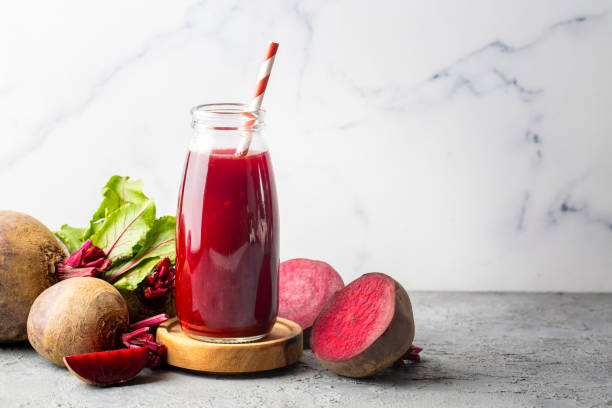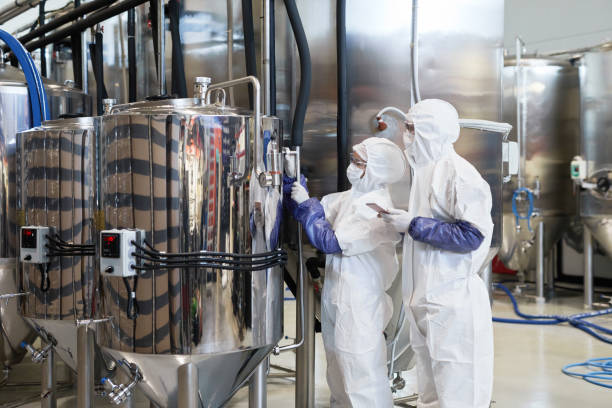
By Morgan Nwanguma
Drinking beetroot juice rich in nitrates can help lower blood pressure in older adults by reshaping the oral microbiome, according to researchers at the University of Exeter. In the largest study of its kind, scientists found that beneficial bacteria in the mouth increased while harmful ones declined, improving the body’s ability to convert dietary nitrates into nitric oxide—a molecule essential for healthy blood vessels.
The study, published in Free Radical Biology and Medicine, compared responses between younger and older adults. While previous research has shown that a nitrate-rich diet can lower blood pressure and reduce the risk of heart disease, this study revealed a striking age-related difference. Older participants who drank a concentrated beetroot “shot” twice daily for two weeks experienced a significant drop in blood pressure. This effect was not observed in the younger group.
Researchers believe the improvement in older adults is linked to changes in the balance of oral bacteria. When harmful bacteria dominate, the body’s conversion of dietary nitrate—commonly found in vegetables—into nitric oxide is reduced. By restoring this balance, beetroot juice enhanced nitric oxide production, supporting blood vessel function and blood pressure regulation.
The research was funded by a BBSRC Industrial Partnership Award and highlights how simple dietary interventions may offer cardiovascular benefits, especially in older populations.
Study author Professor Anni Vanhatalo, of the University of Exeter, said: “We know that a nitrate-rich diet has health benefits, and older people produce less of their own nitric oxide as they age. They also tend to have higher blood pressure, which can be linked to cardiovascular complications like heart attack and stroke. Encouraging older adults to consume more nitrate-rich vegetables could have significant long term health benefits. The good news is that if you don’t like beetroot, there are many nitrate-rich alternatives like spinach, rocket, fennel, celery and kale.”
The study involved 39 adults under the age of 30 and 36 adults in their 60s and 70s, recruited through the NIHR Exeter Clinical Research Facility with trial support from the Exeter Clinical Trials Unit. Participants completed two trial phases: two weeks of daily nitrate-rich beetroot juice and two weeks of a placebo version with the nitrate removed. Each phase was separated by a two-week “washout” period to reset the system. Researchers then used bacterial gene sequencing to examine the composition of the oral microbiome before and after each phase.
Both younger and older adults showed significant shifts in their oral microbiome after drinking the nitrate-rich juice, though the patterns varied between age groups. In older participants, levels of the bacteria Prevotella declined, while populations of beneficial bacteria such as Neisseria increased. Importantly, this group—who began the study with higher average blood pressure—experienced reductions in blood pressure after the nitrate-rich juice, but not after the placebo.
Co-author Professor Andy Jones, of the University of Exeter, said: “This study shows that nitrate-rich foods alter the oral microbiome in a way that could result in less inflammation, as well as a lowering of blood pressure in older people. This paves the way for larger studies to explore the influence of lifestyle factors and biological sex in how people respond to dietary nitrate supplementation.”
Dr Lee Beniston FRSB, Associate Director for Industry Partnerships and Collaborative Research and Development at BBSRC, said:
“This research is a great example of how bioscience can help us better understand the complex links between diet, the microbiome and healthy ageing. By uncovering how dietary nitrate affects oral bacteria and blood pressure in older adults, the study opens up new opportunities for improving vascular health through nutrition. BBSRC is proud to have supported this innovative partnership between academic researchers and industry to advance knowledge with real-world benefits.”The paper is titled ‘Ageing modifies the oral microbiome, nitric oxide bioavailability and vascular responses to dietary nitrate supplementation’ and appeared in the journal Free Radical Biology and Medicine.





